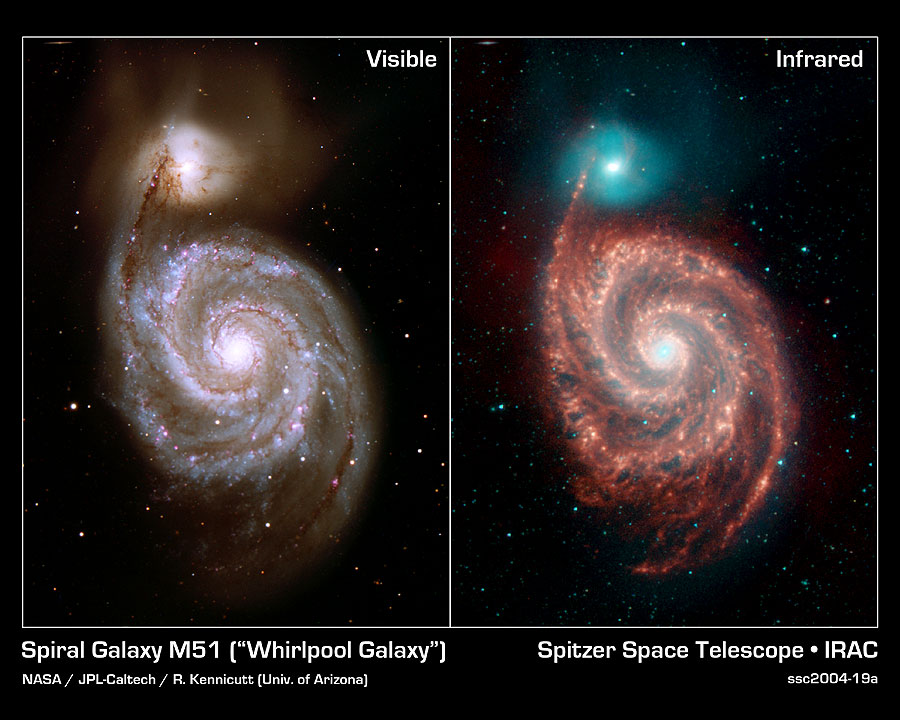

PROFESSOR: Michael Shull
TIME AND PLACE: MWF 9:00 - 9:50 am, DUANE E-126.
COURSE HOME PAGE: http://casa.colorado.edu/~mshull/grad-galaxies/
GOALS OF THIS COURSE:
This class offers an introduction to galaxies, galactic dynamics,
and current topics in galactic formation, structure, and evolution.
Intended primarily for APS and Physics graduate students,
the overall goal is to provide familiarity with stellar and galactic dynamics,
and current views on the origin and evolution of galaxies, quasars, and clusters.
Regular homework sets (60% of total grade) will be handed out in class.
Therefore, it will be in your interest to attend class regularly.
Please enjoy this course: the lectures, reading, class discussion,
even the homework sets.
The major topics to be covered in ASTR 5720 include:
TEXTBOOKS:
I have asked you to obtain a standard graduate textbook (second one is optional):
GRADE:
Homework (60%), Final Exam or Project (25%), Quality of class participation (15%)
PREREQUISITES: Undergraduate degree in Physics
(especially classical mechanics, modern physics, statistical and thermal
physics, electromagnetic theory) or permission of the instructor.
MATHEMATICAL SKILLS REQUIRED:
Mathematical and physical concepts at a level consistent
with a first-year graduate student in Physics or Astrophysics, including Mathematical
Methods of Physics (potential theory, Poisson equation, partial differential equations,
special functions -- Spherical Harmonics, Bessel, Legendre, etc.).
ADDITIONAL COURSE INFORMATION
(All students are expected to know this information,
although it is meant primarily for undergraduate courses and students.)
DISABILITIES:
If you qualify for accommodations because of a
disability, please submit to me a letter from Disability Services in a
timely manner so that your needs may be addressed. Disability Services
determines accommodations based on documented disabilities.
Contact: 303-492-8671, Willard 322, and
http://www.Colorado.EDU/disabilityservices
CU HONOR CODE:
I expect all CU students to be aware of
and to follow the CU Honor Code as well as the CU Policy on Classroom and
Course-Related behavior. Please come on time, and do not disrupt the
attention of other students by conversation or leaving the classroom
early with excess noise.
Students and faculty each have responsibility for maintaining an appropriate
learning environment. Those who fail to adhere to such behavioral standards may
be subject to discipline. Professional courtesy and sensitivity are especially
important with respect to individuals and topics dealing with differences of
race, culture, religion, politics, sexual orientation, gender, gender variance,
and nationalities. All students of the University of Colorado at Boulder are
responsible for knowing and adhering to the academic integrity policy of this
institution. Violations of this policy may include: cheating, plagiarism, aid
of academic dishonesty, fabrication, lying, bribery, and threatening behavior.
All incidents of academic misconduct will be reported to the Honor Code
Council (honor@colorado.edu; 303-725-2273). Students who are found to be in
violation of the academic integrity policy will be subject to both academic
sanctions from the faculty member and non-academic sanctions (including but
not limited to university probation, suspension, or expulsion). Other
information on the Honor Code can be found at
http://www.colorado.edu/policies/honor.html
and at
http://www.colorado.edu/academics/honorcode/
NOTE: It's fine to help each other with homework. I encourage you to
do so, and will also offer help during office hours. But simply copying
other people's work without trying to understand it is a bad idea. The
reason homework is assigned is for you to learn what you need for the
course, and what you hand in should show us that you personally understand it.
PERSONAL BEHAVIOR (University Policy):
Students and faculty each have responsibility for
maintaining an appropriate learning environment. Students who fail to
adhere to such behavioral standards may be subject to discipline.
Faculty have the professional responsibility to treat all students with
understanding, dignity and respect, to guide classroom discussion and
to set reasonable limits on the manner in which they and their students
express opinions. Professional courtesy and sensitivity are especially
important with respect to individuals and topics dealing with
differences of race, culture, religion, politics, sexual orientation,
gender variance, and nationalities. Class rosters are provided to
the instructor with the student's legal name. I will gladly honor your
request to address you by an alternate name or gender pronoun. Please
advise me of this preference early in the semester so that I may make
appropriate changes to my records. See policies at
http://www.colorado.edu/policies/classbehavior.html
and at
http://www.colorado.edu/studentaffairs/judicialaffairs/code.html#student_code
The University of Colorado at Boulder policy on Discrimination and
Harassment (http://www.colorado.edu/policies/discrimination.html),
the
University of Colorado policy on Sexual Harassment and the University
of Colorado policy on Amorous Relationships applies to all students,
staff and faculty. Any student, staff or faculty member who
believes she/he has been the subject of discrimination or harassment
based upon race, color, national origin, sex, age, disability,
religion, sexual orientation, or veteran status should contact the
Office of Discrimination and Harassment (ODH) at 303-492-2127 or the
Office of Judicial Affairs at 303-492-5550. Information about the
ODH and the campus resources available to assist individuals regarding
discrimination or harassment can be obtained at
http://www.colorado.edu/odh